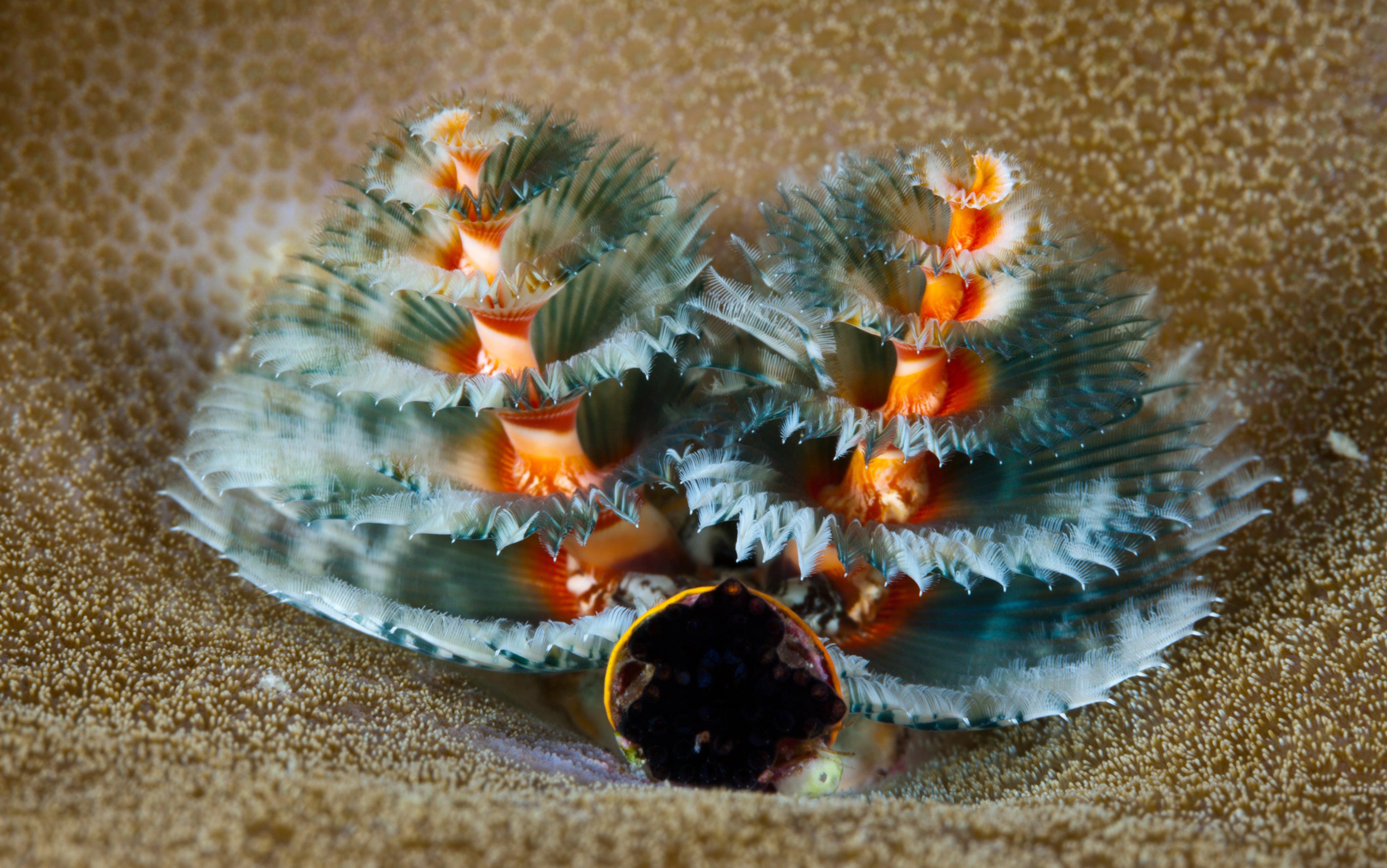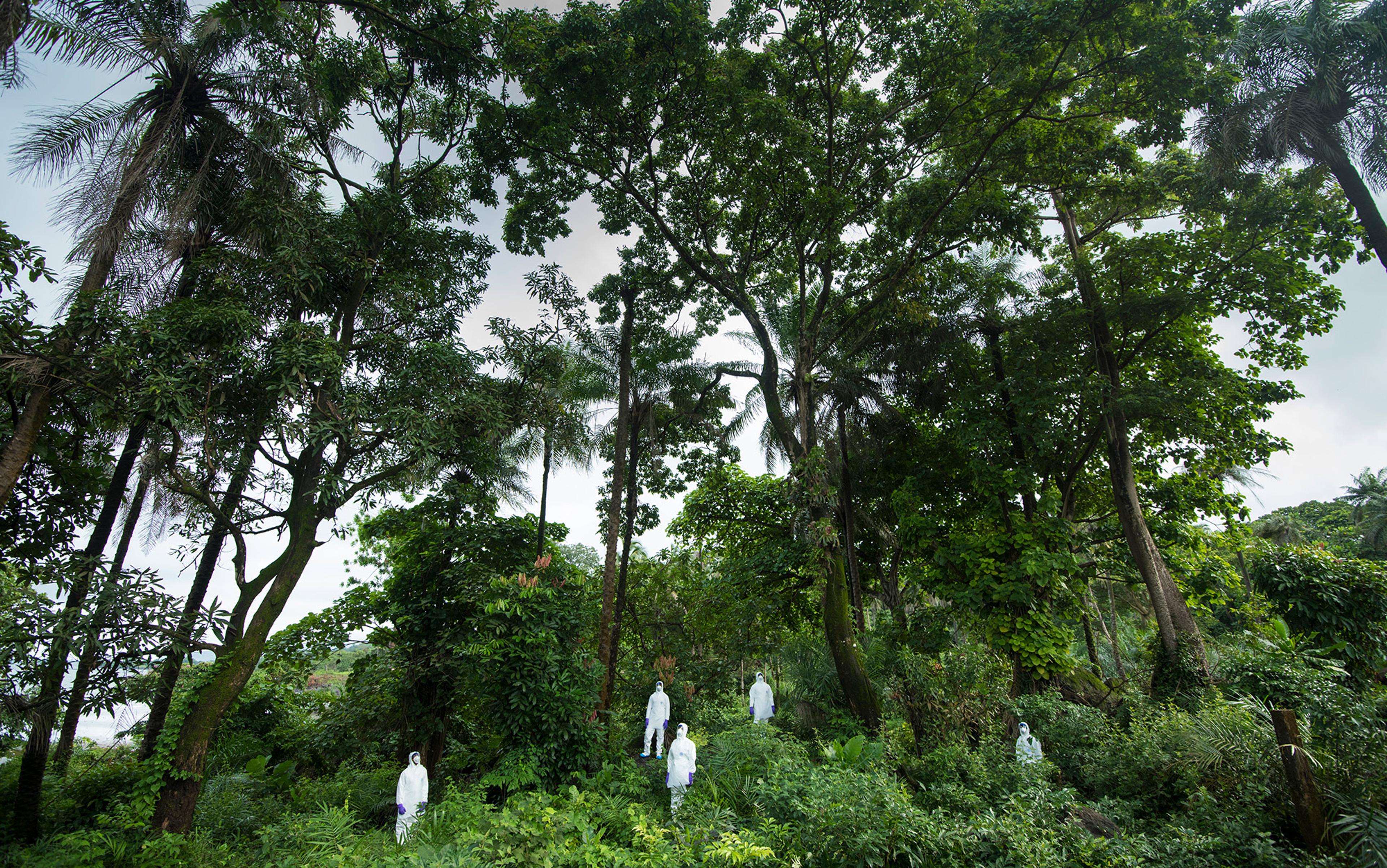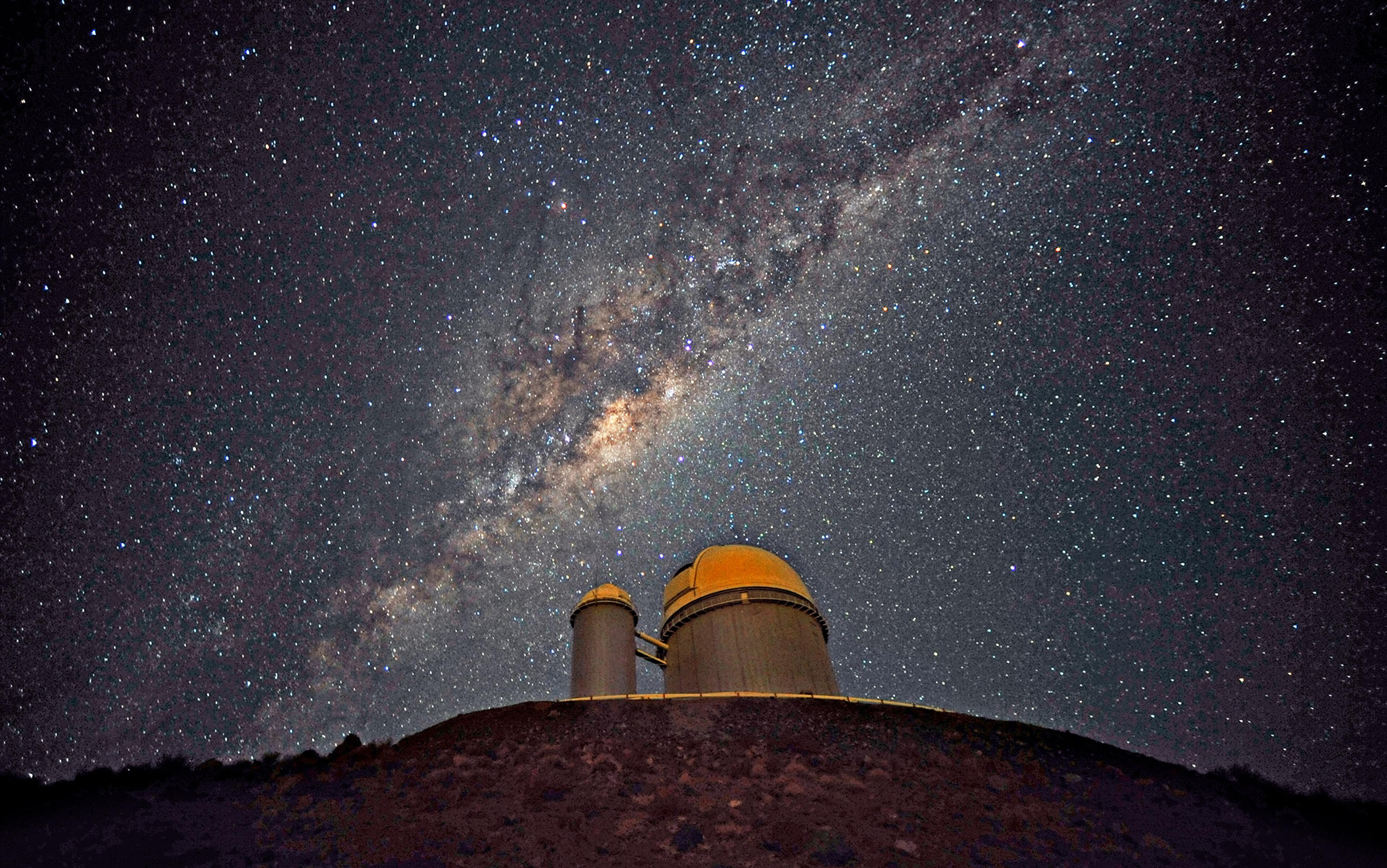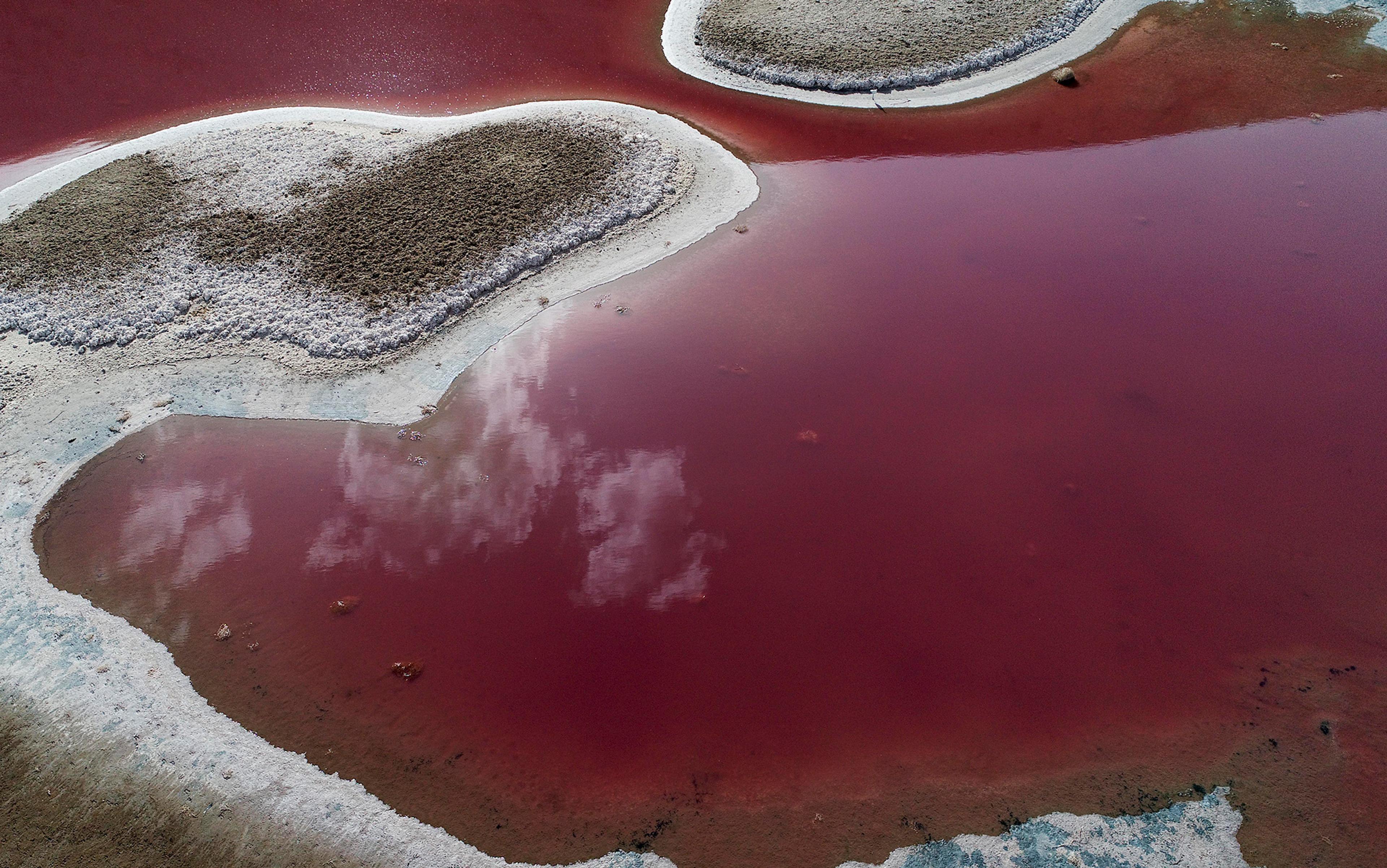It wasn’t the Martians’ fault their planet died. If they existed – once – Martians were likely microbes, living in a world much like our own, warmed by an atmosphere and crisscrossed by waterways. But Mars began to lose that atmosphere, perhaps because its gravity wasn’t strong enough to hold onto it after an asteroid impact, or perhaps it was gradually blown away by solar winds. The cause is still mysterious, but the ending is clear: Mars’s liquid water dried up or froze into ice caps, leaving life without its most precious resource. Any Martians would have been victims of a planet-wide natural disaster they could neither foresee nor prevent.
For Chris McKay, a planetary scientist at NASA’s Ames Research Center in California, the moral implications are clear: we should help our neighbours. Earthlings might not have been able to intervene when Martians were dying en masse (we were just microbes ourselves), but now, billions of years later, we could make it up to them. We’ve already figured out an effective way to warm up a planet: pump greenhouse gases into its atmosphere. McKay imagines a not-too-distant future in which we park machinery on Mars that converts carbon and fluorine in the Martian soil into insulating chlorofluorocarbons, and spews them into the planet’s puny atmosphere like a protein shake designed to bulk it up. ‘On Earth, we would call it pollution. On Mars, it’s called medicine,’ McKay told me in an interview. On his calculation, Mars would be warm enough to support water and microbial life within 100 years.
The practice of making a dead world habitable is called terraforming. In science fiction, Earthlings terraform other planets in order to occupy them, usually after trashing Earth. Think of the TV show Firefly (2002), where humans use terraforming technologies to settle the galaxy, pioneer-style. This is not what McKay has in mind. When it comes to Mars, he says, ‘it’s a question of restoration rather than creation’. It’s a distinction that makes the project not only possible, but also ethical: ‘If there were Martians, and they’re still viable, then in my view they own the planet.’
On Earth, scientists have managed to revive bacteria that has been frozen in ice sheets or entombed in salt crystals for millions of years. So it’s possible that extinct Martians aren’t extinct at all. Warm up Mars, McKay reasons, and the red planet might just spring back to life. But that won’t happen without Earth’s intervention. As McKay put it to me: ‘We should say: “We can help you. We’ll bring back the water, we’ll make it warm again, and you can flourish.”’
McKay’s terraforming scenario raises the question of what our moral obligations are to any alien life we might meet. NASA scientists have stated publicly that we are likely to find life elsewhere in the Universe in 10-20 years, if not sooner. The first signs could come from Curiosity, the rover currently combing Mars for organic compounds, or from a mission to Europa, the moon of Jupiter that might host teeming ecosystems in its ice-covered, planet-wide sea. It might equally come from an exoplanet atmosphere, whose spectrum carries a chemical signature (such as abundant oxygen) that could have been created only by life on its surface. Whatever it is, we’re going to see it soon.
We’ve rehearsed this moment in popular culture many times over. The way we tell it – from Star Trek to Avatar – it will be the story of a technologically advanced civilisation encountering a less advanced one and bending it to its will; humans can play either role. Such narratives tend to draw on a grossly simplified history, a reworking of human-human meetings between Old World and New. Of course, these encounters – and the conflicts that followed – were never as one-sided as we like to claim today; just try telling the Spanish conquistador Hernán Cortés, gazing at the web of artificial islands that formed the lake city of Tenochtitlán (now Mexico City), that the Aztecs were technologically unsophisticated. A meeting between civilisations from different planets would be just as nuanced (and messy), and just as easy for the conquerors (who might not be us) to rewrite after the fact. Historical encounters have many lessons to teach us about how (not) to treat ‘the other’ – on Earth and off. It’s just that, when it comes to the discovery of alien life, that’s not what’s going to happen.
There are two forms the discovery of alien life could realistically take, neither of them a culture clash between civilisations. The first is finding a ‘biosignature’ of, say, oxygen, in the atmosphere of an expolanet, created by life on the exoplanet’s surface. This kind of long-distance discovery of alien life, which astronomers are already scanning for, is the most likely contact scenario, since it doesn’t require us going anywhere, or even sending a robot. But its consequences will be purely theoretical. At long last we’ll know we’re not alone, but that’s about it. We won’t be able to establish contact, much less meet our counterparts – for a very long time, if ever. We’d reboot scientific, philosophical and religious debates about how we fit into a biologically rich universe, and complicate our intellectual and moral stances in previously unimaginable ways. But any ethical questions would concern only us and our place in the Universe.
‘first contact’ will not be a back-and-forth between equals, but like the discovery of a natural resource
If, on the other hand, we discover microbial or otherwise non-sentient life within our own solar system – logistics will be on our side. We’d be able to visit within a reasonable period of time (as far as space travel goes), and I hope we’d want to. If the life we find resembles plants, their complexity will wow us. Most likely we’ll find simple single-celled microbes or maybe – maybe – something like sponges or tubeworms. In terms of encounter, we’d be making all the decisions about how to proceed.
None of this eliminates the possibility that alien life might discover us. But if NASA’s current timeline holds water, another civilisation has only a few more decades to get here before we claim the mantle of ‘discoverer’ rather than ‘discovered’. With every passing day, it grows more likely that ‘first contact’ will not take the form of an intellectual or moral back-and-forth between equals. It will be more like the discovery of a natural resource, and one we might be able to exploit. It won’t be an encounter, or even a conquest. It will be a gold rush.
This makes defining an ethics of contact necessary now, before we have to put it into practice. The aliens we find could stretch our definitions of life to the absolute limit. We won’t see ourselves in them. We will struggle to understand their reality (who among us feels true empathy for a tubeworm latched to a rock near a hydrothermal vent in the deep ocean?) On Earth, humans long ago became the global force that decides these strange creatures’ fates, despite the fact that we barely think about them and, in many cases, only recently discovered their existence. The same will be true for any nearby planet. We are about to export the best and worst of the Anthropocene to the rest of our solar system, so we better figure out what our responsibilities will be when we get there.
Philosophers and scientists at this year’s meeting of the American Association for the Advancement of Science (AAAS), in San Jose, California, were tasked with pondering the societal questions bound up in astrobiology. The topics on the table were as diverse as the emerging field. The astronomer Chris Impey of the University of Arizona discussed the coming boom in commercial space travel, connecting the companies’ missions with the ‘Manifest Destiny’ arguments used by American settlers in the 19th century. Arsev Umur Aydinoglu, a social scientist from the Middle East Technical University in Turkey, talked about how scientists in an interdisciplinary field such as astrobiology find ways to collaborate in the notoriously siloed and bureaucratic behemoth that is NASA. Synthetic biology and artificial intelligence came up a lot as possible parallels for understanding life with a different history to ours.
But it was Sara Waller, a philosopher from Montana State University, who dived most deeply into questions about discovery, ownership and exploitation, which would play out in any off-world tripping. She invited the audience to consider the way we decide who owns territory: does it go to the discoverers, or the political or commercial entity they represent? To ‘productive’ settlers, who, as the 17th-century philosopher John Locke believed, mix their labour with the land? Or to the species who ‘needs’ it most? And how do we decide what ‘need’ even means? After we’ve laid claim to territory in a capitalist system, can we ever be trusted to preserve it?
The ethics of encountering non-sentient alien life in our solar systems boils down to a core dilemma, says Waller. ‘Is it about conservation and preservation? Or is it about our needs, wants, and desires?’ On Earth, natural-resource grabs have a history of bringing out the worst in us as a species. Consider the example of gold. Conquistadores exterminated entire societies in their hunt for gold, when they weren’t enslaving people to mine it. Prospectors in California blasted away mountains with water canons to access it, permanently altering the geology of the state. Today, small-scale gold miners in South America rip apart rainforests and pollute rivers with mercury, trying to sop up the last specks of gold to sell to a market still in upswing.
There’s plenty of reason to believe other planets will be chock-full of resources we’d like to exploit, even if the life forms are microbial – perhaps especially if they’re microbial.
Think of everything we use Earth microbes for: creating and preserving food, treating disease, and processing waste, to name a few. All of that could be enhanced by exploiting a whole new tree of life. Imagine new antibiotics to which Earth bacteria could never evolve resistance, or microbes that excreted a renewable fuel that burns hotter than oil. Or just all the weird cheeses we could make! Synthetic biologists would see their toolkit multiply exponentially the more trees of alien life we discover.
could we bring ourselves to care about ruining another planet, especially when no sentient beings are objecting?
Perhaps the scariest lesson of resource grabs is that we rarely label our actions as evil or even problematic while we’re engaged in them. That realisation comes later, once we find ourselves living in degraded environments. Before then, it’s an ecological and economic free-for-all. Already, as Impey pointed out to the AAAS panel, private companies are engaged in a space race of sorts. For now, the viable ones operate with the blessing of NASA, catering directly to its (governmental) needs. But if capitalism becomes the driving force behind space travel – whether through luxury vacations to the Moon, safari tours of Europa, mining asteroids for precious minerals, or turning alien worlds into microbial gardens we harvest for ourselves – the balance struck between preservation and exploitation, unless strictly defined and powerfully enforced, will be at risk of shifting in line with companies’ profit margins. Given the chance, today’s nascent space industry could become the next oil industry, raking in the cash by destroying environments with society’s tacit approval.
On Earth, it’s in our interest as a species to stave off ecological meltdown – and still we refuse to put the brakes on our consumption of fossil fuels. It’s hard to believe that we could bring ourselves to care about ruining the environment of another planet, especially when no sentient beings are objecting and we’re reaping rewards back on Earth.
But maybe conservation won’t be our ethical choice when it comes to alien worlds. Let’s revisit those resistance-proof antibiotics. Could we really leave that possibility on the table, condemning members of our own species to suffer and die in order to preserve an alien ecosystem? If alien life is non-sentient, we might think our allegiances should lie foremost with our fellow Earthlings. It’s not necessarily unethical to give Earthling needs extra weight in our moral calculus. But now is the time to discuss under what conditions we’d be willing to exploit alien life for our own ends. If we go in blind, we risk leaving a solar system of altered or destroyed ecosystems in our wake, with little to show for it back home.
The way Montana State’s Sara Waller sees it, there is a middle ground between fanatical preservation and free-for-all exploitation. We might still study how the resources of alien worlds could be used back home, but the driving force would be peer review rather than profit. This is similar to McKay’s dream of a flourishing Mars. ‘Making a home for humans is not really the objective of terraforming Mars,’ he explains. ‘Making a home for life, so that we humans can study it, is what terraforming Mars is about.’
Martian life could appear superficially similar to Earth life, taking forms we might recognise, such as amoebas or bacteria or even something like those teddy-bear tardigrades. But its origin and evolution would be entirely different. It might accomplish many of the same tasks and be recognisable as members of the same category (computers; living things), but its programming would be entirely different. The Martians might have different chemical bases in their DNA, or run off RNA alone. Maybe their amino acids will be mirror images of ours. Finally we’d have something to compare ourselves to, and who’s to say we won’t decide the other way has some advantages?
From a scientific perspective, passing up the opportunity to study a completely new biology would be irresponsible – perhaps even unconscionable. But the question remains: can we be trusted to control ourselves?
Happily, we do have one example of a land grab made good here on Earth: Antarctica. The Antarctic Treaty System, first signed in 1959 and still in effect, allows nations to establish as many scientific bases as they want on the continent but prohibits them from laying claim to the land or its resources. (Some nations, including the UK and Argentina, claimed Antarctic territory before the treaty went into effect. The treaty neither recognises nor disputes those claims, and no new claims are permitted.) Military activities are prohibited, a provision that allowed both the US and the Soviet Union to maintain scientific research stations there for a large part of the Cold War. Among the few non-scientists who get to visit the continent are grant-funded artists, tasked with documenting its glory, hardship and reality.
Antarctica is often compared to an alien world, and its strange and extreme life forms will no doubt inform how and where we look for life on other planets. So much astrobiology research is performed in Antarctica that it makes both practical and poetic sense to base our interactions with alien environments on our approach to that continent. We’re on our way; international rules prohibiting the introduction of invasive species in Antarctica already guide the precautions scientists take to eliminate any hitchhiking Earth microbes on space rovers and probes. As we look toward exploring alien environments on other planets, Antarctica should be our guide.
The Antarctic Treaty, impressive as it is as an example of cooperation and compromise, gets a huge assist from the continent itself: Antarctica is difficult to get to, and almost impossible to live on. There’s not a lot to want there. Its main attraction either as a research location or tourist destination (such as it is) is its extremity. It’s conceivable that Europa or even a rehabilitated Mars would be the same: inaccessible, inhospitable, interesting only to a self-selecting group of scientists and auxiliary weirdos drawn to the adventure and isolation of it all, as in Werner Herzog’s beautiful documentary about Antarctica, Encounters at the End of the World (2007), funded by one of those artist grants. (One hopes those will exist for other planets, too.) But if alien worlds are full of things we desire, the ideal of Antarctica might get quickly left behind.
Earthlings have no vested interest in the status quo on Mars, and no one else seems to either – so let’s play
Still, the Antarctic Treaty ought to be our starting point for international discussion of the ethics of alien contact. Even if Mars, Europa or other biologically rich worlds are designated as scientific preserves, open to heavily vetted research and little else, it is impossible to know where that science will take us, or how it will affect the territories in question. Science might also be used as a mask for more nefarious purposes. The environmental protection provisions of the Antarctic Treaty will be up for review in 2048, and China and Argentina are already strategically positioning themselves to take advantage of an open Antarctica. If the treaty isn’t renewed, we could see mining and fishing operations devastate the continent. And even when we follow the rules, we can’t always control the outcome. The treaty’s best regulations haven’t prevented the human-assisted arrival of introduced species such as grasses, many of which are quickly colonising the habitable portion of the continent.
Of course, science is unpredictable, by design. Let’s return to the example of terraforming Mars one final time. Once we set the process in motion, we have no way of knowing what the outcome will be. Ancient Martians might be awakened from their slumber, or new life could evolve. Maybe we’ve already introduced microbes on one of our rovers, despite our best efforts, and, given the chance, they’ll overrun the world like those grasses in Antarctica. Maybe nothing at all will happen, and Mars will remain as lifeless as it is today. Any of those outcomes is worthy of study, argues Chris McKay. Earthlings have no vested interest in the status quo on Mars, and no one else seems to either – so let’s play. When it comes to experiments, barrelling into the unknown with few ideas and no assurances is kind of the point.
In some ways, the discovery of alien life is a singularity, a point in our history after which everything will be so transformed that we won’t even recognise the future. But we can be sure of one thing: we’ll still be human, for better and for worse. We’ll still be selfish and short-sighted, yet capable of great change. We’ll reflect on our actions in the moment, which doesn’t rule out our regretting them later. We’ll do the best that we can, and we’ll change our minds along the way. We’ll be the same explorers and experimenters we’ve always been, and we’ll shape the solar system in our image. It remains to be seen if we’ll like what we see.
In the end, the only questions that matter are ones we’ve been wrestling with since we became human: when must my needs give way to another’s? How can we make life better for ourselves and for others? And how do we correct course once we realise we’ve made something worse? Discussing how we’ll answer those questions in relation to alien life is our greatest chance to wrestle with who we want to be as a species. What we decide – and what we do – will illuminate who we really are.






